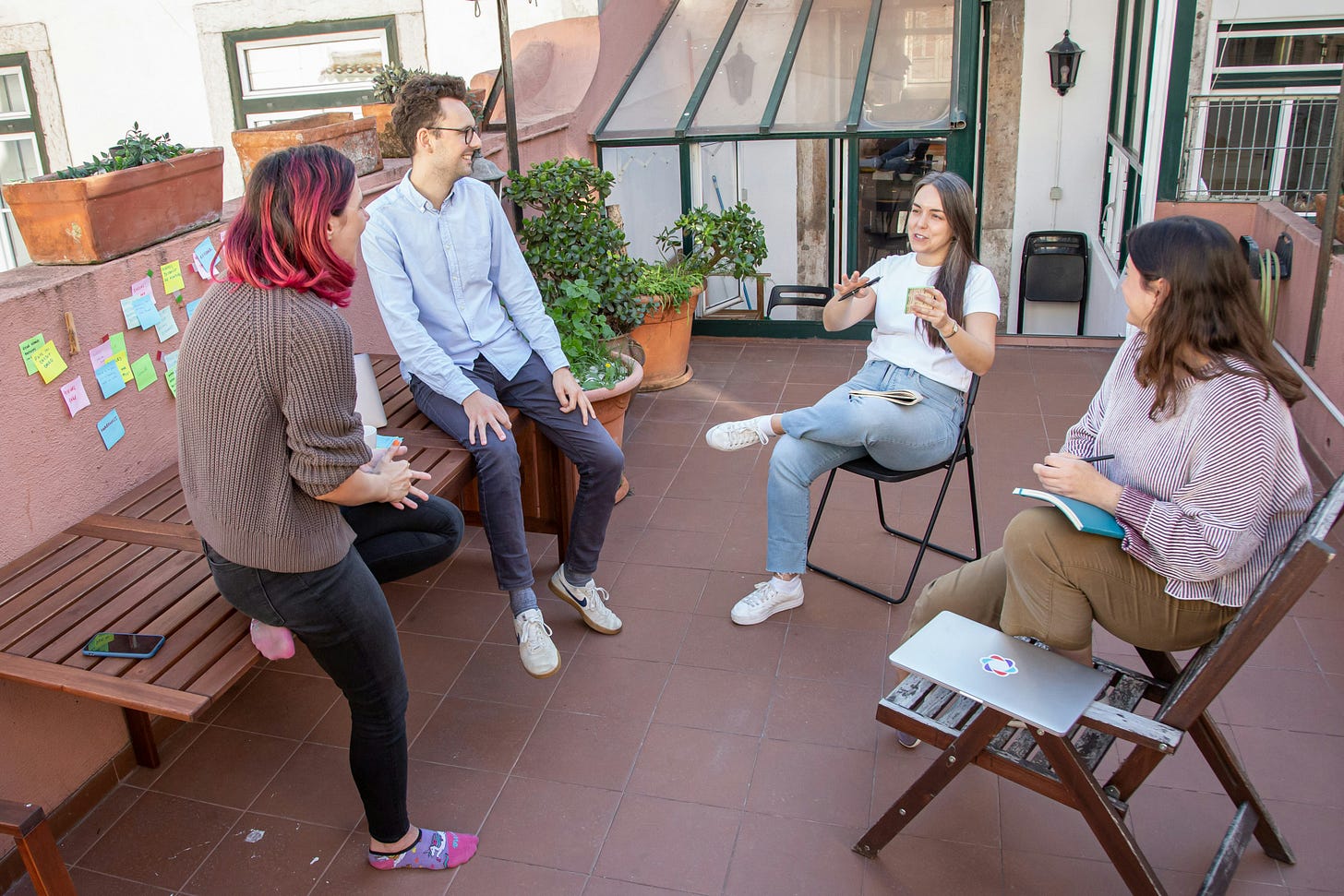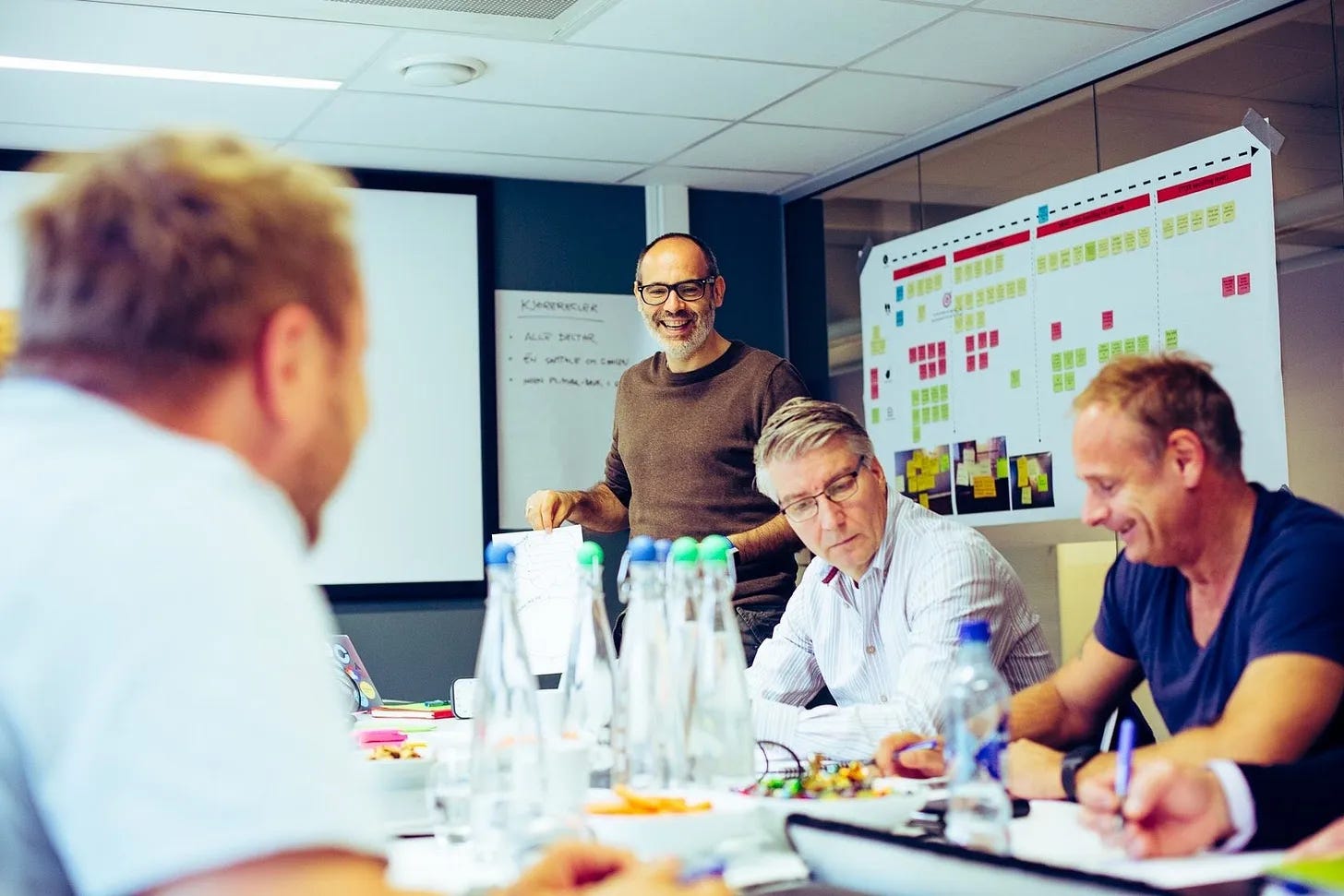In the fast-moving world of teams and projects, whether in tech, public service, design, or community initiatives, one simple ritual can drastically improve communication, alignment, and momentum: the daily stand-up.
While it's often associated with Agile and Scrum practices, the daily stand-up is a flexible tool that can be adapted to any context where a group of people works toward a shared goal. In this post, we'll explore what a daily stand-up is, its key elements, its benefits, and when it makes sense to use it—even outside the traditional Agile bubble.
What Is a Daily Stand-Up?
A daily stand-up (also known as a daily huddle or morning check-in) is a short, structured meeting—typically held standing up to keep it brief—where team members quickly update each other on their current work and any blockers.
The typical duration is 10–15 minutes, and it usually happens at the start of the day and It is done standing up (to keep things brief), it’s a pulse-check, not a deep-dive.
Think of it as your team’s heartbeat: regular, grounding, and energizing.
Key Aspects of a Daily Stand-Up
Same time, same place
Routine builds rhythm. Consistency helps the team plan and reinforces accountability.Everyone speaks, but briefly
It’s not a reporting session to the manager—everyone addresses the team.The standard 3 questions (but flexible)
Traditionally:What did I do yesterday?
What will I do today?
Are there any blockers?
But these can be adapted. For example, a design team might ask:
What feedback did I get?
What am I prototyping today?
Where do I need input?
Visual management helps
A Kanban board, a shared digital workspace, or even sticky notes can enhance focus and help spot bottlenecks.Time-boxing is key
It’s not a space for deep discussions—those should happen afterward with the relevant people.
Benefits of a Daily Stand-Up
Improved communication: Everyone stays in the loop with minimal overhead.
Faster problem-solving: Blockers are identified early and can be addressed quickly.
Increased accountability: Team members track their commitments day by day.
Higher engagement: Everyone has a voice and visibility in the process.
Better flow of work: It helps identify patterns, delays, and opportunities to rebalance workloads.
Strengthened team culture: Regular, informal contact builds trust and cohesion.
Human rhythm: When things are messy or uncertain, this ritual builds momentum.
When (and Where) to Use Daily Stand-Ups
Daily stand-ups originated in Agile and Scrum, but their utility goes far beyond.
Here are a few settings where daily stand-ups work wonders:
Design teams using the Business Model Canvas or Service Blueprinting, needing to sync on iterative work and stakeholder feedback.
Public sector innovation teams, balancing policy design, user insight, and cross-departmental collaboration.
Startup teams, where speed and clarity are essential, and everyone wears multiple hats.
Operations teams, such as those running live services or community programs, who need daily coordination and rapid response.
Event or campaign teams, working toward a clear deadline with multiple moving parts.
Volunteer or civic groups, where consistent check-ins can build a rhythm without formal hierarchy.
It’s especially useful when:
Work is interdependent
Teams are remote or hybrid
Timelines are tight
Projects are ambiguous or evolving
You want to build trust and rhythm in a newly formed team
Try This With Your Team
Want to get started tomorrow? Here’s a simple script:
Set a fixed time (e.g., 09:00) and keep it consistent.
Gather around your canvas, board, or task tracker.
Ask:
“What moved yesterday?”
“What’s my next small move?”
“What’s stuck or unclear?”
End with:
“Anything that needs a deeper chat?”—and then park that for after.
Stick with it for one week, then reflect: What’s working? What’s missing?
Final Thoughts
The daily stand-up is a facilitation tool disguised as a tech ritual. It gives your team just enough structure to reduce friction, it’s a pulse check, a coordination tool, and a team health booster.
And while it’s rooted in software development, it’s not confined to it. Whether you're redesigning a public service, launching a campaign, or running a cross-sector collaboration, the daily stand-up can help keep things moving, aligned, and human.
Try it for a week. Keep it short, honest, and regular. And don’t be afraid to adapt it to your context. Like any great tool, it works best when it’s shaped by the people who use it.
PS) Exciting Changes Ahead at Facili-station!
Thank you for being part of this journey! From now on, 90% of Facili-station's content will be available exclusively to paid subscribers. For just $100 per year, less than the cost of a couple of Starbucks coffees each month, you’ll not only access premium facilitation and innovation insights but also receive free coaching, mentoring, and be part of an exclusive professional community.
From now on I will publish one open post each month that will be accessible to all subscribers (like this one), both free and paid. In addition, I will share four exclusive posts every month, available only to my paid subscribers.
These exclusive posts will dive deeper into service design, innovation, facilitation techniques, and practical insights to help you grow as a facilitator.
Paid subscribers will also enjoy added benefits like
free facilitation coaching and mentoring with me, and
access to a special social community.
Your support keeps this platform thriving, and I’d love for you to be part of this next chapter. Join us and continue growing with Facili-station!
— José Manuel Redondo Lopera
I hope this post, made sense and you found it useful.
If “HELL YEAH!”, please like it and share it in social media so more people can get can also benefit from it :-)
I would also appreciate if you subscribe, and give some comments here if you wonder something and want to give me some feedback. I would love to read your input here!
If you have a Substack yourself and like my content, I would love for you to recommend “Facili-station” to your subscribers.
Have a nice one!!
If you need a workshop designer and facilitator to help you or your team to solve challenges, find solutions, make decisions, and to be more effective an perform better and faster, or a trainer to teach your team on how do this, please contact me at jose@facilistation.com
My workshops are designed to provide the structure required to quickly align and move forward with a plan or idea so you can reclaim time, energy and headspace.



